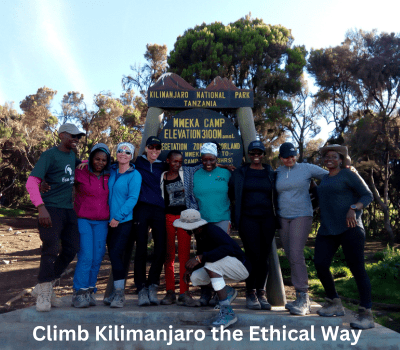Do I Need to Hire a Guide to Climb Kilimanjaro Africa?
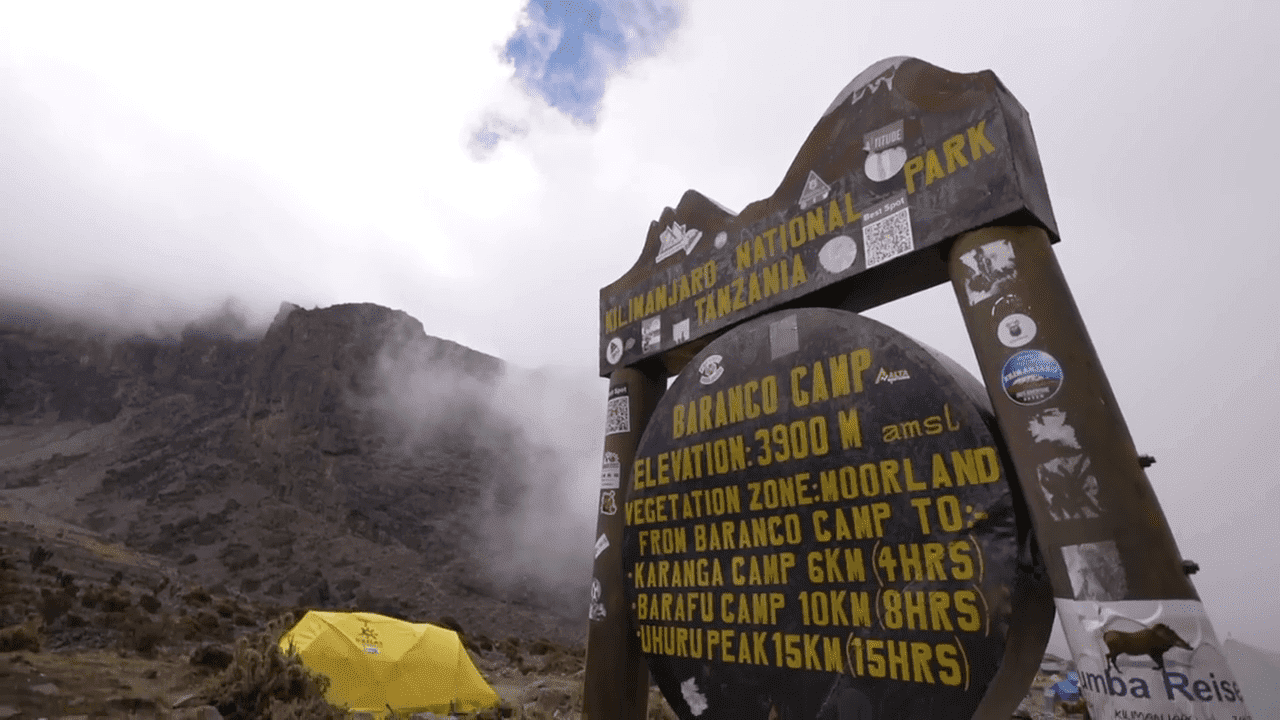
Introduction: Why This Question Matters More Than You Think
Mount Kilimanjaro stands tall as Africa’s highest peak and one of the world’s most iconic treks. Every year, thousands of adventurers from across the globe dream of conquering the Roof of Africa. But before tying up your boots and grabbing your daypack, one important question arises: Do I really need to hire a guide to climb Kilimanjaro?
If you’ve trekked solo in the Himalayas or hiked the Andes independently, it’s natural to wonder if Kilimanjaro is the same. But unlike many global peaks, Kilimanjaro has a unique combination of altitude, terrain, weather unpredictability, and—most importantly—strict legal regulations that directly affect whether you can attempt it alone.
In this guide, we’ll break down everything you need to know, including the laws, safety factors, and undeniable benefits of hiring a certified guide through trusted local companies like Eco-Africa Climbing.
Is It Legally Mandatory to Have a Guide on Kilimanjaro?
Yes. By Tanzanian law, you are required to hire a licensed guide to climb Kilimanjaro. This rule is enforced by the Tanzania National Parks Authority (TANAPA), which governs access to Kilimanjaro National Park. You cannot legally enter any of Kilimanjaro’s official routes without registering through an authorized tour operator that provides a certified mountain guide.
At the park gates, rangers check every climber’s documentation. If you’re not accompanied by a licensed guide and a recognized trekking company, you will be denied entry—period.
This regulation is designed to ensure climber safety, preserve the mountain’s ecosystem, and support ethical employment for local guides and porters. In other words, it’s not a restriction—it’s a smart policy that keeps everyone safe and the mountain sustainable.
Safety Risks of Climbing Kilimanjaro Without a Guide
Even if climbing without a guide were legal (which it isn’t), it would still be highly dangerous. Kilimanjaro may not require technical mountaineering, but that doesn’t make it easy. The real challenge lies in the altitude, changing weather, and remote location.
Some of the biggest risks of a solo attempt include:
- Altitude Sickness (AMS): Without medical training, you might ignore early signs of Acute Mountain Sickness, HAPE, or HACE—potentially fatal conditions.
- No Emergency Support: If you suffer an injury or illness, you’ll have no help reaching safety or calling for evacuation.
- Navigation Errors: Kilimanjaro’s trails are vast and weather-dependent. Getting lost could mean hours (or days) without shelter or assistance.
- No Daily Health Checks: Guides use pulse oximeters, track hydration, and adjust pace to help prevent altitude issues.
- Park Protocol Violations: Without knowledge of Tanzanian climbing regulations, it’s easy to break rules and endanger yourself and others.
At Eco-Africa Climbing, our certified guides undergo training in Wilderness First Response (WFR), carry emergency oxygen, and perform twice-daily medical checks. You’re never alone up there—and that’s exactly how it should be.
Benefits of Hiring a Certified Kilimanjaro Guide
Hiring a guide is about more than ticking a legal box. It’s your golden ticket to a safer, richer, and more successful trek. Here’s what professional guides provide:
- Summit Success: Guided trekkers have higher success rates due to expert pacing, acclimatization strategy, and support.
- Cultural Insight: Learn Swahili phrases, local legends, and mountain history from your guide—this adds soul to your summit story.
- Route Navigation: Guides adjust routes based on weather, group fitness, and altitude symptoms.
- Porter Team Management: Your guide ensures porters are fed, equipped, and protected—especially when working with KPAP-partner companies like us.
- Motivation & Support: When altitude kicks in, mental strength fades. Your guide will lift you emotionally and physically—step by step.
Think of your guide as your mentor, medic, navigator, and cheerleader—all wrapped into one. That’s the power of a qualified team.
What Happens If You Try to Climb Without a Guide?
Attempting to climb Kilimanjaro without a certified guide can lead to:
- Immediate expulsion from the park by TANAPA rangers
- Confiscation of climbing permits and equipment
- Possible fines or legal action from park authorities
- Nullification of any travel insurance due to policy violations
It’s simply not worth the risk. Instead, choose a transparent, ethical operator like Eco-Africa Climbing, where safety and professionalism are built into every climb.
Understanding TANAPA Regulations and Their Impact on Climbers
The Tanzania National Parks Authority (TANAPA) enforces strict regulations to ensure the safety of climbers and the preservation of Mount Kilimanjaro’s environment. Since 1991, it has been mandatory for all climbers to be accompanied by a licensed guide. This policy aims to:
- Enhance Safety: Guides are trained to handle emergencies and monitor climbers’ health.
- Protect the Environment: Guides ensure that climbers adhere to designated trails, minimizing ecological impact.
- Support Local Communities: The regulation creates employment opportunities for local guides and porters.
Climbers attempting to ascend without a guide face denial of entry at park gates, fines, or other legal consequences. Therefore, hiring a certified guide is not just a recommendation—it’s a requirement.
How Hiring a Guide Increases Your Chances of Reaching the Summit
Climbing Mount Kilimanjaro is a challenging endeavor, with success heavily reliant on proper acclimatization and support. Hiring a guide significantly boosts your chances of reaching the summit due to:
- Expertise in Acclimatization: Guides help set a pace that allows your body to adjust to the altitude.
- Health Monitoring: Regular health checks by guides can detect early signs of altitude sickness.
- Motivation and Support: Guides provide encouragement and assistance, especially during difficult segments of the climb.
Statistics indicate that climbers with professional guides have higher success rates compared to those attempting the climb independently.
The Crucial Role of Guides in Emergency Situations
Mount Kilimanjaro’s high altitude and unpredictable weather conditions can lead to emergencies such as altitude sickness, injuries, or sudden illnesses. Certified guides are trained to:
- Recognize Symptoms: Early detection of altitude-related illnesses is vital for prompt treatment.
- Administer First Aid: Guides carry medical kits and are trained in first aid procedures.
- Coordinate Evacuations: In severe cases, guides can arrange for immediate evacuation to medical facilities.
Having a knowledgeable guide ensures that emergencies are handled efficiently, reducing risks and potentially saving lives.
Understanding Guide-to-Client Ratios for Optimal Safety
Maintaining appropriate guide-to-client ratios is essential for personalized attention and safety. Standard ratios include:
- 1:2 Ratio: One guide for every two climbers is ideal for small groups.
- 2:4 Ratio: One guide for every four climbers is acceptable for larger groups, supplemented by assistant guides.
These ratios ensure that each climber receives adequate support, and any issues can be promptly addressed.
Tips for Selecting a Qualified Kilimanjaro Guide
Choosing the right guide is crucial for a successful and enjoyable climb. Consider the following when selecting a guide:
- Certification: Ensure the guide is licensed by TANAPA and has relevant training.
- Experience: Look for guides with a proven track record of successful climbs.
- Affiliation: Guides associated with reputable tour operators often adhere to higher standards.
- Reviews: Check testimonials and reviews from previous clients for insights into the guide’s professionalism and reliability.
At Eco-Africa Climbing, our guides are not only certified but also passionate about providing a memorable and safe climbing experience.
Real-World Stories: Guided Climbs vs. Solo Attempt Disasters
Nothing makes the case for hiring a guide stronger than hearing the experiences of climbers who’ve been there. While successful summits often highlight the encouragement, safety, and insights provided by guides, failed solo attempts frequently involve altitude emergencies, wrong turns, and panic under pressure.
Consider these real examples:
- Guided Climber: “Our Eco-Africa Climbing guide paced us perfectly, caught early signs of AMS, and helped every team member summit safely.”
Stories like these underscore that a Kilimanjaro guide isn’t just helpful—they’re essential to your safety and success.
Expert Opinion: Why Tanzanian Mountaineers Recommend Hiring a Guide
We spoke to leading Kilimanjaro professionals and local experts who have summited the mountain hundreds of times. Their message is clear:
“Without a guide, Kilimanjaro becomes ten times harder. A licensed guide doesn’t just protect your life—they bring the mountain to life with stories, strategies, and soul.”
— Gewa Gewa., Lead Guide at Eco-Africa Climbing
Guides offer insights into the best water stops, ideal rest points, flora and fauna, and safe pacing strategies. Their value goes far beyond legal obligations—they’re your cultural and physical safety net.
Supporting the Local Economy and Porter Welfare
When you hire a guide through a KPAP-affiliated company like Eco-Africa Climbing, you’re not just buying a service—you’re uplifting an entire community.
Benefits include:
- Creating sustainable employment for Tanzanian guides and porters
- Ensuring fair wages and ethical treatment through KPAP standards
- Funding local development through tourism revenue
Hiring a guide is one of the best ways to ensure your adventure contributes to local livelihoods—not just personal goals.
Does Hiring a Guide Make the Climb More Expensive?
Surprisingly, no. Since TANAPA regulations mandate a licensed operator for all climbs, the cost of a guide is already included in your package—whether you choose a budget or luxury operator.
Attempting to bypass this requirement can result in:
- Fines or legal trouble
- Eviction from the park without refund
- Loss of insurance coverage for medical emergencies
If you want a transparent, affordable option that includes certified guides, see our Kilimanjaro price breakdown or request a free quote.
Conclusion: Hiring a Guide Isn’t Optional — It’s Essential
Climbing Mount Kilimanjaro is a bold goal—but it’s not one you should face alone. Tanzanian law requires every climber to be accompanied by a licensed guide for good reason: safety, success, sustainability. A guide is more than a rule—they are your medical responder, route planner, cultural bridge, and motivator on tough terrain.
From avoiding altitude emergencies to ensuring fair porter treatment, the best climbs are led by qualified locals who know every stone and story of the mountain. If you’re looking to summit Kilimanjaro the right way—legally, ethically, and confidently—book with a certified, KPAP-affiliated team like Eco-Africa Climbing.
Frequently Asked Questions (FAQs)
Can I climb Kilimanjaro without a guide if I’ve climbed other mountains solo?
No. Regardless of your mountaineering experience, you must be accompanied by a certified guide according to Tanzanian law and TANAPA regulations.
Are guides included in Kilimanjaro tour packages?
Yes. Reputable tour operators include certified guides in all packages. At Eco-Africa Climbing, this is a core part of your experience—not an extra cost.
What certifications should a Kilimanjaro guide have?
Guides should be licensed by TANAPA, trained in altitude medical response, and WFR-certified. Look for KPAP partners to ensure porter welfare as well.
Do all operators follow these requirements?
Not always. Some budget or foreign companies cut corners. Choose a 100% local operator like Eco-Africa Climbing for complete transparency, safety, and accountability.
How do I know if a guide is legit?
Ask for their license, certifications, and TripAdvisor reviews. At Eco-Africa Climbing, we introduce your guide before the trek and share testimonials from real clients.
Climb with Confidence — Book with Certified Guides at Eco-Africa Climbing
Ready to tackle Kilimanjaro with a team that leads with safety, heart, and expertise? Book your adventure with Eco-Africa Climbing and climb alongside experienced, certified guides who treat every trek like a mission.
Explore our best routes:
Start your journey now by visiting our booking request page or contact us for a personalized consultation.
Share:
Related Posts
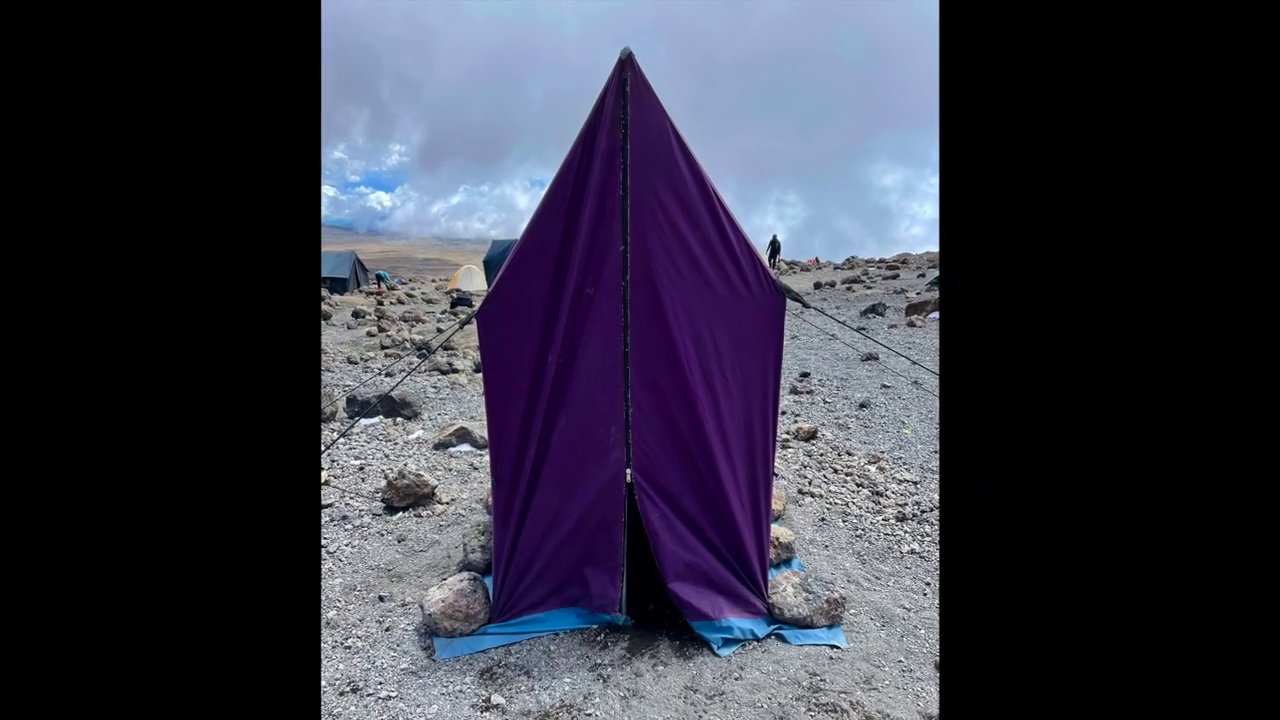
bathroom on mountain kilimanjaro
Bathroom on Mountain Kilimanjaro: What to Expect and How to Prepare Introduction One of the most common — and least discussed — questions from people
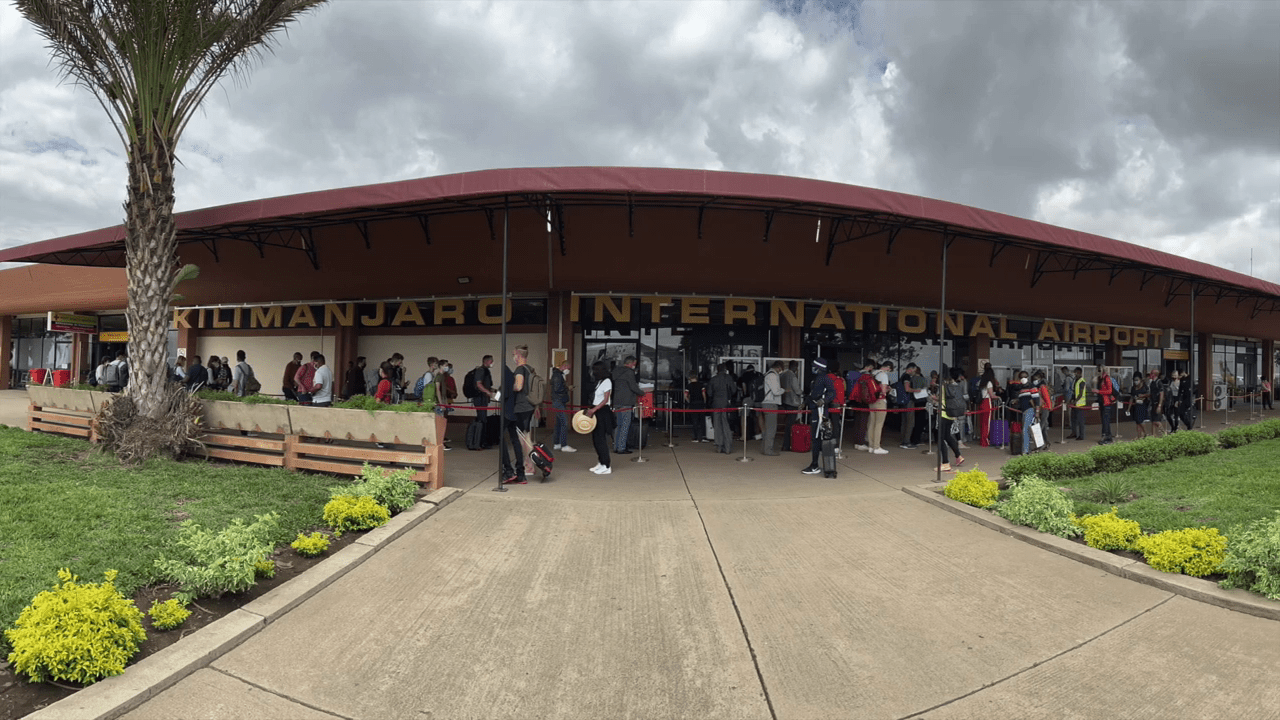
Are Guides Readily Available in Tanzania Without Prior Booking?
Are Guides Readily Available in Tanzania Without Prior Booking? Introduction: Should You Risk Climbing Without Pre-Booking? Climbing Mount Kilimanjaro is a dream for many adventurers.
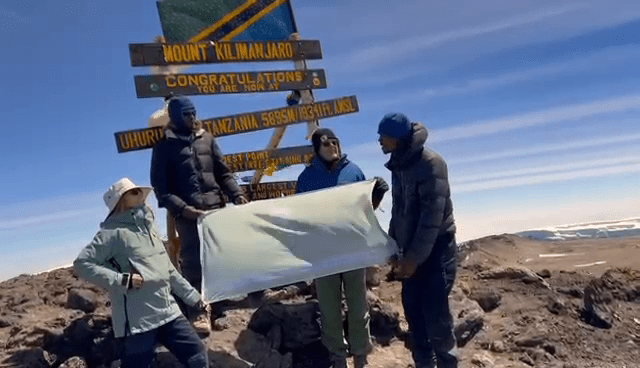
How Can I Find a Reliable Local Guide for My Kilimanjaro Expedition?
How Can I Find a Reliable Local Guide for My Kilimanjaro Expedition? Introduction: Why the Right Guide Is Key to Kilimanjaro Success Climbing Mount Kilimanjaro
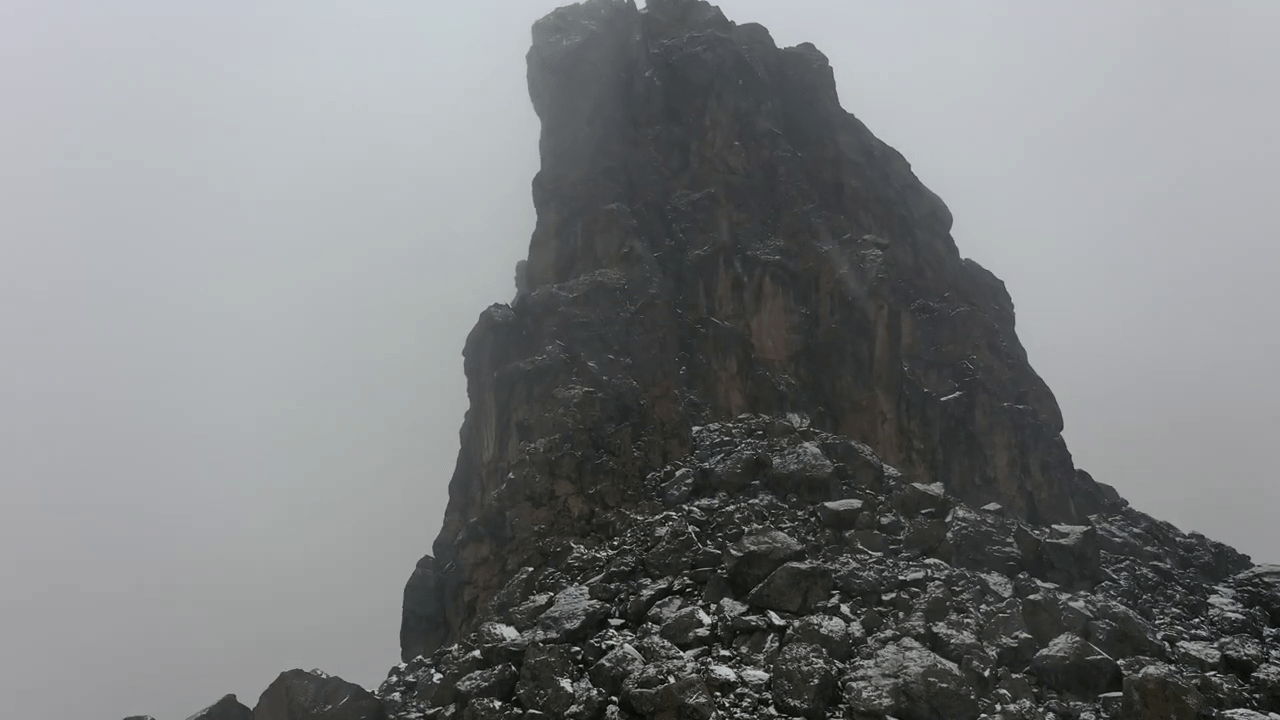
Is Climbing Kilimanjaro Dangerous for Individuals Without Mountaineering Experience?
Is Climbing Kilimanjaro Dangerous for Individuals Without Mountaineering Experience? Introduction: The Myth of Danger and Experience Many aspiring adventurers wonder if climbing Mount Kilimanjaro is
